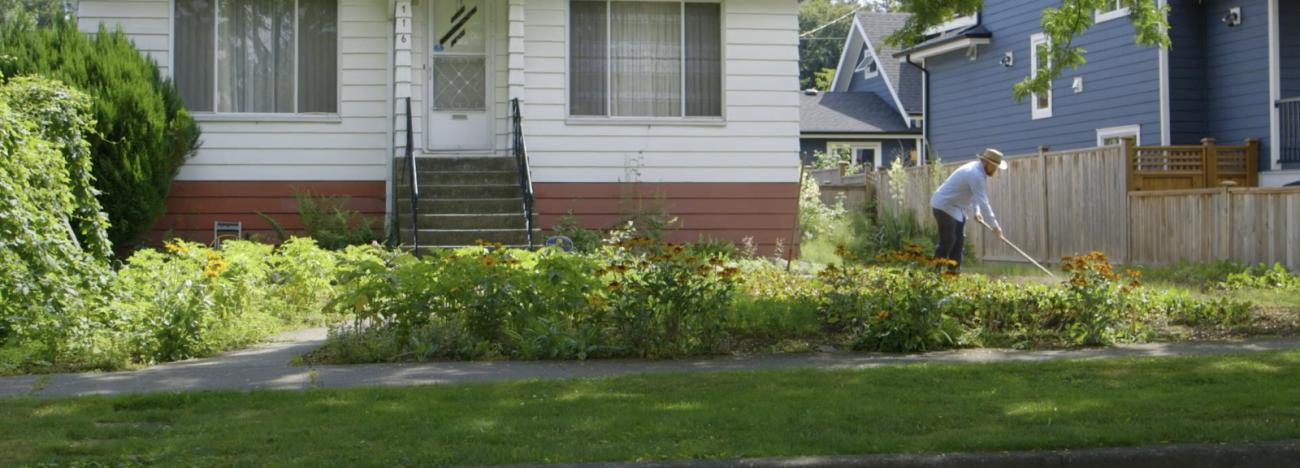The Urban Farmer
TRANSCRIPT:
Ever since I can remember, I've been an environmentalist and ecologically minded. I grew up in a home where that was important.
As I grew up and grew into an adult, it was more and more clear that we weren't stewarding the natural world in a way that was going to be safe and beneficial for future generations. And then when I found that I could link food growing and concrete work in food systems with an angle that was about ecological sustainability, it propelled me into the life that I now lead.
My name is Camil Dumont. I'm a graduate of the Land and Food Systems faculty at the University of British Columbia. I am an urban farmer and the executive director and the head farmer at Inner City Farms, which is a nonprofit urban farm here in Vancouver.
The beginning of Inner City Farms was really very small-scale and very personal. Some friends and I wanted to have more influence over what we were eating and we thought: We enjoy gardening, but have no space. We said: Hey, look, let's find some people that aren't using their gardens, and say, “We'll trade you some of the food for access to the space.”
People's friends and parents heard about this little initiative we were doing, and the first year I think we got six or seven little gardens that people weren't using. We were just really impressed by how productive the gardens became, and by the end of the first year we had 17 or 18 shares.
So, it's been 10 years and we're still going.
Graduate school for me was a place to play in "idea land" and think about stuff. My work was about the history of Vancouver's food sustainability movement and what the political motivations were for some of the beginning of what is sustainability. We may act that way, but my generation didn't invent sustainability. So, learning a little bit about those who came before and that [earlier] work…. [I] got to meet really intelligent people who were working hard on stuff they believed in -- and that is, you know, really changing and shifting how we operate in agriculture and in our world.
So, recently I ran for the Vancouver Park Board, and I was fortunate enough to be successful. It's not directly connected to food, but what it is connected to is systems and land management and understanding the importance of connecting to green space.
I also really just feel that we are at a tipping point with our relationship to climate -- the carrying capacity of our earth and the systems that we rely on to eat and live. All the decisions I make at the Park Board I'm looking at through an ecological lens.
We are at this place now, and I'm not willing to just give up and pack it in.
<holding up sunglasses to his daughter’s face> Let’s get these on, ready?
Just under two years ago, I became a dad, and my beautiful little daughter has shifted my world a little bit. It's made the future more concrete for me to have a kid. Like, I can picture her deciding if she wants to have kids. And then, when I connect that to where we are with climate breakdown, I think: Okay, well it's my responsibility as a parent — not only to her but to all the kids who are innocent of all of this — to try my best and try my hardest to afford her the opportunities that I want for her.
Growing food, or sharing a meal with your friends, or cooking for someone, or have someone cook for you — it's a window into a very beautiful and positive experience.
Putting effort into building and creating sustainable food systems and pushing back against the forces that are linking our food to destroying the Earth — that's better for all of us. It's better for the bees, it’s better for the birds, it's better for the people that are our friends, and families, and neighbours.
I think working together, even in simple terms, on projects that make things better for people is worth it.
































